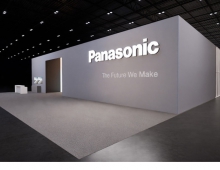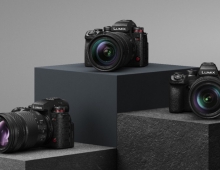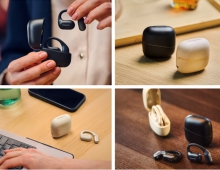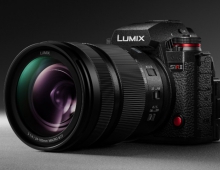
Panasonic Reports Operating Profit For 3Q 2013
Panasonic's profit rose 20 percent in the October-December quarter as growth in businesses such as smart home systems offset losses in its TV and appliance divisions.
The Japanese company on Tuesday reported net income of 73.7 billion yen ($728 million), up from 61.3 billion yen a year earlier.
Sales increased by 10 percent to 2.0 trillion yen, helped by new home construction in Japan, strong auto sales and the depreciation of the yen.
Under such business circumstances, Panasonic has been promoting initiatives in restructuring unprofitable businesses and developing strategy for future growth in a group formation through its Business Division system to revitalize each business.
The company has decided to discontinue its PDP production, and exit from its resin-based multi-layer printed circuit board business and thin and high density interposer business among the printed circuit board business.
In addition, Panasonic and Tesla Motors (Tesla) reached an agreement in which Panasonic will expand its supply of automotive-grade lithium-ion cells to Tesla. The company also announced its share purchase agreement for VIKO, a Turkish wiring device maker.
Panasonic's Board of Directors has also agreed to conduct an absorption-type company split, effective June 1, 2014 (planned), in order to transfer its business relating to the development, manufacture and sales of semiconductor and other related products belonging to the Semiconductor Business Division (BD) of Panasonic, to a company to be newly incorporated in March 2014 by Panasonic.
At the same time, Panasonic resolved to enter into a share transfer agreement with UTAC Manufacturing Services Ltd., a wholly-owned subsidiary of UTAC Holdings, a manufacturer specialized in semiconductor assembly, in order to transfer to UMS, effective June 1, 2014 (planned), all shares held by Panasonic (through its subsidiaries) in three (3) subsidiaries whose factories operate semiconductor assembly lines in Singapore, Indonesia and Malaysia.
Battered by competition from Samsung and others, Panasonic has been trying to shift from consumer electronics to more profitable businesses such as batteries, solar panels and home automation.
The company raised its profit forecast for the fiscal year ending March to 100 billion yen from the 50 billion yen profit it forecast in October.
Sales increased by 10 percent to 2.0 trillion yen, helped by new home construction in Japan, strong auto sales and the depreciation of the yen.
Under such business circumstances, Panasonic has been promoting initiatives in restructuring unprofitable businesses and developing strategy for future growth in a group formation through its Business Division system to revitalize each business.
The company has decided to discontinue its PDP production, and exit from its resin-based multi-layer printed circuit board business and thin and high density interposer business among the printed circuit board business.
In addition, Panasonic and Tesla Motors (Tesla) reached an agreement in which Panasonic will expand its supply of automotive-grade lithium-ion cells to Tesla. The company also announced its share purchase agreement for VIKO, a Turkish wiring device maker.
Panasonic's Board of Directors has also agreed to conduct an absorption-type company split, effective June 1, 2014 (planned), in order to transfer its business relating to the development, manufacture and sales of semiconductor and other related products belonging to the Semiconductor Business Division (BD) of Panasonic, to a company to be newly incorporated in March 2014 by Panasonic.
At the same time, Panasonic resolved to enter into a share transfer agreement with UTAC Manufacturing Services Ltd., a wholly-owned subsidiary of UTAC Holdings, a manufacturer specialized in semiconductor assembly, in order to transfer to UMS, effective June 1, 2014 (planned), all shares held by Panasonic (through its subsidiaries) in three (3) subsidiaries whose factories operate semiconductor assembly lines in Singapore, Indonesia and Malaysia.
Battered by competition from Samsung and others, Panasonic has been trying to shift from consumer electronics to more profitable businesses such as batteries, solar panels and home automation.
The company raised its profit forecast for the fiscal year ending March to 100 billion yen from the 50 billion yen profit it forecast in October.





















